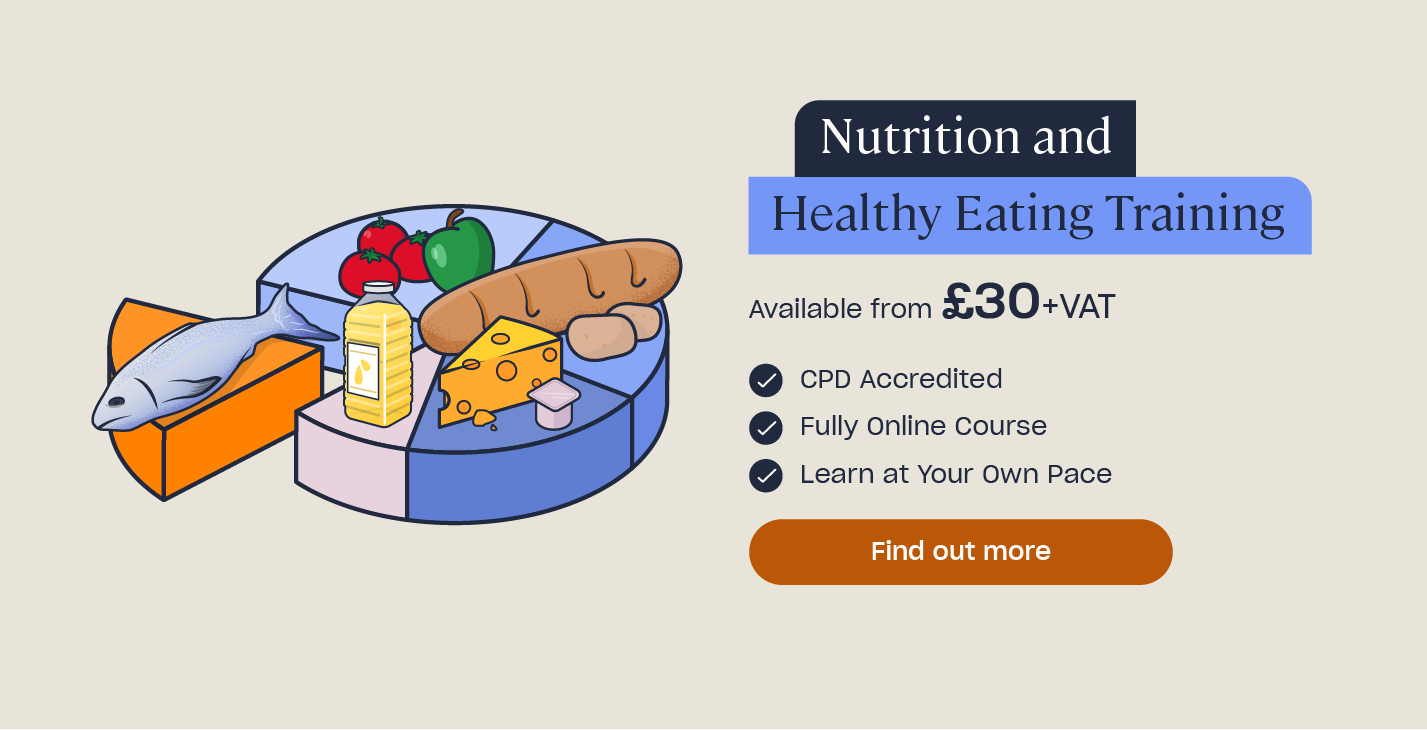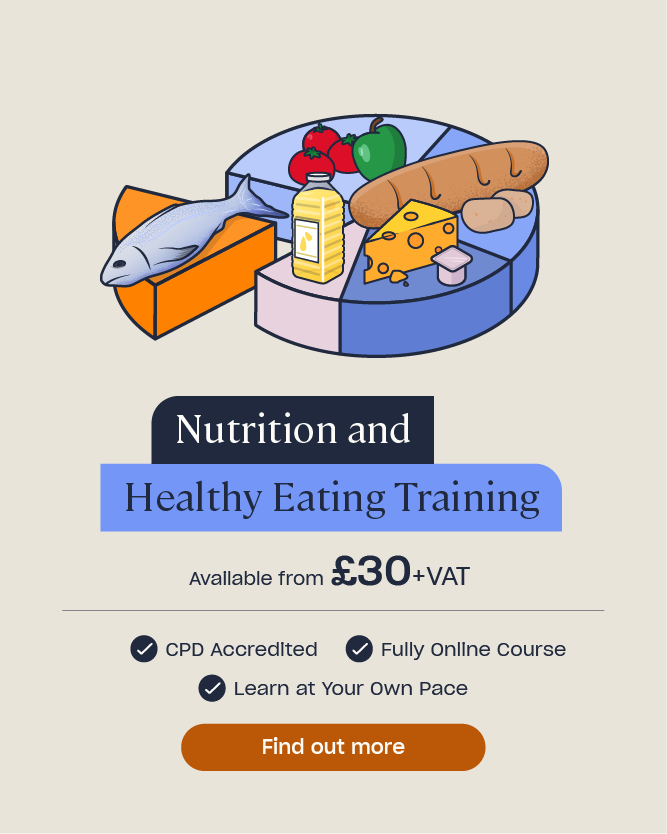10 Vegan Myths and Facts
The number of people who follow a vegan diet and lifestyle is exponentially growing, both in the UK and around the world. It’s estimated that around 4% of the UK population is vegan at the moment, and over 700,000 people worldwide signed up to take part in Veganuary in 2023.

As these numbers increase, so too does the sharing of facts and information about veganism. There are countless myths and misconceptions about being vegan, many of which relate to how healthily you can live – from whether or not vegans can get enough protein to whether they can or can’t eat certain foods.
In this article, we’ll look at ten common myths and explain the facts, to help expand your understanding of what it really means to be vegan.
This article covers the following topics:
- What is a vegan diet?
- 10 common myths and facts about veganism
- Myth 1: Vegan food is too expensive
- Myth 2: Veganism is an easy way to lose weight
- Myth 3: Vegans can’t get enough protein
- Myth 4: Vegans can’t get enough calcium
- Myth 5: Vegans can’t get enough nutrients and vitamins
- Myth 6: A vegan diet is too restrictive
- Myth 7: You will always be hungry and tired on a vegan diet
- Myth 8: You cannot be vegan when pregnant
- Myth 9: Vegan products are safe for those with food allergies
- Myth 10: Vegan and plant-based are the same thing
Use the above links to jump to a certain section of the article.
What is a Vegan Diet?
A vegan diet, also often referred to as a plant-based diet, excludes all animal-based foods and anything animal-derived. This refers to all types of meat, including fish and any parts of animals used in food, dairy produce like milk and cheese, eggs from any type of animal, and anything that comes from insects like carmine (crushed insects) and bee honey.
A vegan diet is not the same as a vegetarian, pescatarian, or flexitarian diet, as these allow the consumption of some quantity of animal-based foods or derivatives.

Being vegan also extends beyond food choices. The Vegan Society’s definition of veganism states that:
“Veganism is a philosophy and way of living which seeks to exclude – as far as is possible and practicable – all forms of exploitation of, and cruelty to, animals for food, clothing or any other purpose; and by extension, promotes the development and use of animal-free alternatives for the benefit of animals, humans and the environment.”
Although the Vegan Society was officially formed in 1944, evidence of people avoiding animal products can be traced back over 2,000 years. 1806 marks the earliest recorded case when people publicly objected to eating eggs and dairy.
Over the decades since then, an increasing number of people have adopted veganism, and in that time, we have gained a better understanding of how to live on a plant-based diet. However, there has also been a growing amount of misinformation and myths.
10 Common Myths and Facts About Veganism
Myth 1: “Vegan food is too expensive”
One of the most prevalent myths surrounding veganism is that it isn’t accessible to everyone. The truth is that, just like any diet, plant-based eating is only expensive if you buy a lot of quick-to-eat processed foods, ready-made meals and products from vegan-specific brands. This is particularly the case for vegan foods that are direct substitutes and are designed to cut down cooking time.
The reality is that there are so many vegan foods and ingredients that are cheap and affordable in the UK, especially if the diet is centred around cheaper foods like certain fruits, vegetables, grains and beans.
With good planning, a vegan diet can be affordable and even cheaper than one that includes animal products.
It can certainly present challenges to some people, however. For example, low-income households and those who don’t have a lot of time to cook may rely on quick meals that are more expensive in the long run.

It’s also important to keep in mind that a huge majority of the agricultural subsidies that farmers receive from the government go towards animal produce, as there is such a demand. This is why you’ll often see a frozen burger cost less than a fresh punnet of fruit. As Surge Activism states in reference to DEFRA:
“Around 90% of the annual profit of farmers who graze livestock comes from agriculture subsidies, with some farmers only making £12,000 a year, even though they are given £44,000 in subsidies. Whilst, for comparison, only 10% of fruit farmers’ annual profit came from subsidies.”
As more people adopt a plant-based diet and the demand for vegan products increases, the prices of vegan food will lower, and barriers will be reduced. But in the meantime, there are still plenty of ways to live affordably on a vegan diet.
Myth 2: “Veganism is an easy way to lose weight”
Eating a vegan diet certainly can help you to lose weight and gain more control over what you eat. It’s quite common for new vegans to report that they lost weight in the first few months of changing their diet, especially as their body adjusts to the new type of food it’s digesting.
However, it’s a misconception that veganism automatically equates to weight loss.
Like any diet, it is only beneficial for weight loss and health if well-planned and balanced.
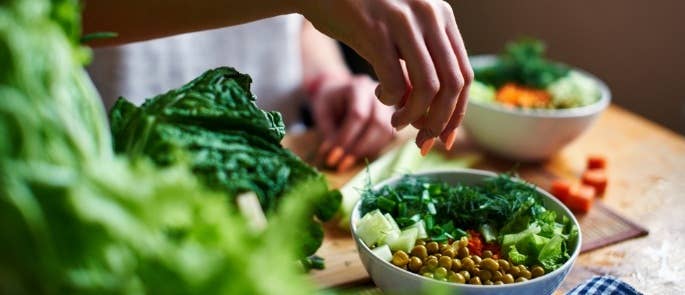
Plant-based eating can lend itself to a healthier diet and help you to lose weight, as your intake of nutritious and low-calorie foods may increase. But it’s completely possible to eat an unhealthy and fatty vegan diet that could instead make you gain weight. This is especially true if your diet consists mostly of carbs, processed vegan options and indulgent treats, which are becoming more and more available.
Whether you’re an omnivore, vegetarian or vegan, proper planning of your diet is essential if you want to manage your weight.
Myth 3: “Vegans can’t get enough protein”
The belief that vegans can’t acquire protein from plant-based eating is undoubtedly the most common misconception and has been repeatedly debunked.
There are countless plant-based sources of protein. Many are actually a healthier source than animal products and have more protein per calorie than meat. Examples of plant-based protein sources include lentils, beans, peas, nuts, mushrooms, soya products (like tofu), broccoli, quinoa, pasta – the list goes on.
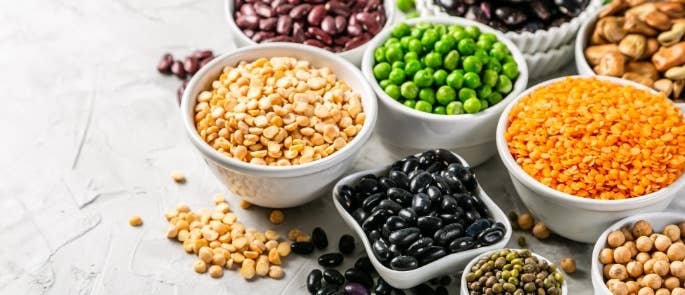
Even if you exercise a lot or are building muscle, you can easily achieve all the protein you need from a plant-based diet. In fact, the famous Netflix documentary “The Game Changers” explores the many benefits of plant-based eating for athletes and highlights the success stories of vegan athletes.
It’s also worth noting that almost all sources of protein, particularly protein acquired from animals like cows and chickens, actually originate from plants. In short, the plants animals eat are broken down and converted into protein.
Myth 4: “Vegans can’t get enough calcium”
Going hand in hand with the previous myth, this misconception is also widespread. It often stems from the incorrect belief that dairy products are the best or only source of calcium.
Like protein, calcium is readily available in a variety of plant-based foods. In fact, some plant-based sources of calcium are better absorbed by the body than dairy milk, such as kale.
Examples of vegan calcium sources include cabbage, broccoli, kale, and other leafy green vegetables, tofu, fortified plant milks, almonds, chia and sesame seeds, beans and pulses and bread (white and brown flour is fortified with calcium by law in the UK).
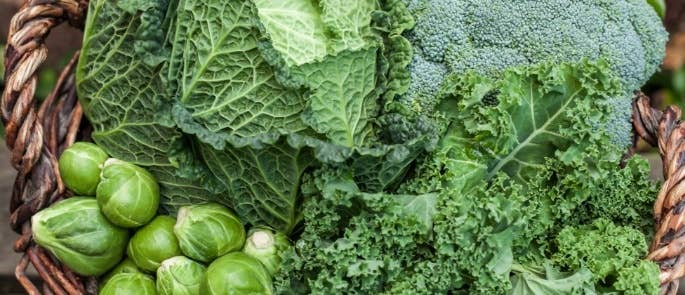
Even if you aren’t vegan, having a range of calcium sources in your diet can be a much healthier option. According to the British United Provident Association (BUPA), one in ten people in the UK are lactose intolerant, meaning dairy products like milk are difficult to digest. Whole milk also contains a high-fat content, making it an unhealthier source of calcium compared to various plant-based options.
Myth 5: “Vegans can’t get enough nutrients and vitamins”
Many people mistakenly think that a vegan diet does not provide all the necessary nutrients and vitamins needed to live healthily. As we’ve seen in the case of protein and calcium, plant-based foods readily provide all the nutrients you need. The only exception is vitamin B12, which we’ll discuss shortly.
Below are a few examples of nutrients and vitamins that misconceptions frequently circulate about.
Iron
According to The Vegan Society, iron deficiency is the most common deficiency in the world. This can occur regardless of whether you’re a meat eater or not, as there are often many factors at play. For example, if you do or don’t eat certain foods that affect absorption, as well as menstruation.
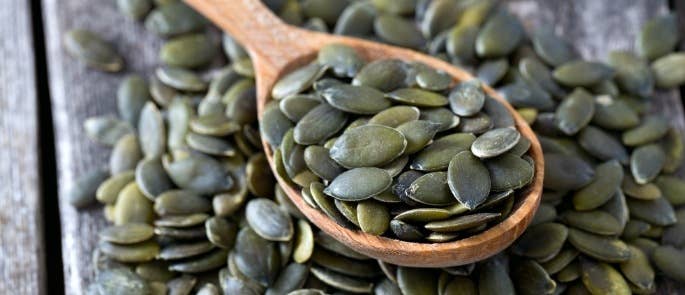
The good news is that iron is readily available from many plants. Examples include lentils, chickpeas, kidney beans, tofu, cashew nuts, kale, quinoa, pumpkin seeds, dried apricots, figs and raisins.
B12
Sources of vitamin B12 are commonly questioned in reference to veganism, as the main sources of vitamin B12 (aside from supplements) are animals and animal products. The reality is that vegans can achieve the intake they need, though the only reliable sources are supplements or fortified foods, so it’s important for vegans to ensure they are getting the necessary amount from them.
It’s also interesting to note that the way in which B12 is typically achieved by omnivores is quite misunderstood.
Vitamin B12 is produced by certain microorganisms. It is not naturally found in plants, but animals acquire it when they graze, as the substance from which they can synthesise it (cobalt) can be naturally present in soil. However, in modern animal agriculture, farmed animals are mostly kept indoors so do not achieve it this way. Therefore, they are normally given cobalt or B12 supplements. This means that farmed animals are mostly a middle-man for a person’s B12 intake.

For vegans, there are fortunately a few ways to healthily acquire B12, the easiest of which is taking a regular supplement. Many vegan foods are also fortified with B12 – such as nutritional yeast, vegan spreads, breakfast cereals and plant milks – and this will usually be highlighted on the food label.
Iodine
Much like vitamin B12, animals typically achieve iodine via soil when grazing, and it is often naturally found in sea life. Farmed animals usually receive supplements to prevent deficiency, as they will not always be able to achieve it through grazing.
While some plants do contain a minimal amount, this isn’t considered an effective way of achieving iodine. Seaweed is an excellent source, though the amount can sometimes be too high, so a moderate intake may be suitable. The most reliable way for vegans to achieve iodine is by taking a regular supplement.
Omega-3 and omega-6 fats
Omega 3s and 6s are vital for brain health, and the common misconception about them is that they’re only achievable from oily fish. There are actually a number of plant-based sources of omega fats, such as various seeds (including pumpkin, sunflower, flax, and chia), walnuts, seaweed and soya spread.
Due to the way omegas are converted in the body, a little extra thought is required to ensure it’s effectively acquired through a vegan diet. In short, this involves balancing your intake of various sources.
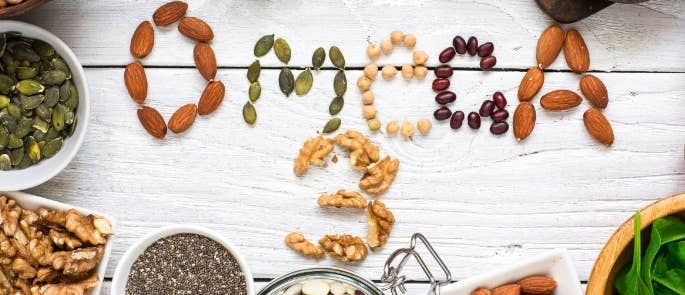
Absorption can also vary from person to person, and there are some rare cases where conversion to the necessary type of omega is a challenge. In this case, an algae-based supplement is suitable, and vegans may want to take this anyway if they find planning meals around it too complicated.
Note that algae is the main source for fish too, and additional omegas are often supplemented into the diets of farmed fish.
Myth 6: “A vegan diet is too restrictive”
As we’ve seen throughout this article, there are so many different foods that vegans can still eat, many of which are fundamentals in any type of diet. The main challenge for vegans is that the demand for animal products is much higher than for vegan products, particularly for easy-to-make foods and when eating out, and there are so many products with tiny traces of animal derivatives.
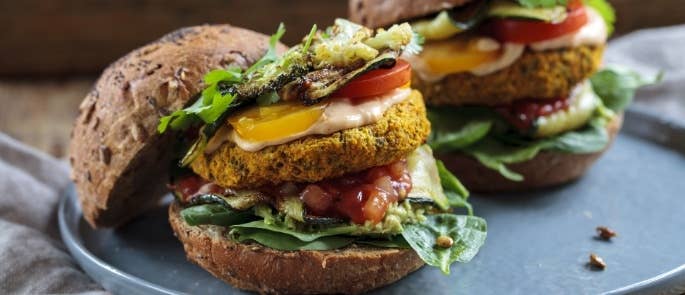
However, the options available are continuously increasing as the number of vegans continues to rise, and there are countless recipe possibilities. There is a substitution or alternative for just about every animal product, from meats to milks to chocolates. Nowadays, most UK supermarkets have dedicated plant-based sections, and most eateries offer at least one or two vegan options, and this is on the rise each year.
Many vegans even report that they became more creative with cooking, and they eat a wider variety of foods once they swap their diet.
Myth 7: “You will always be hungry and tired on a vegan diet”
This misconception is usually prompted by the myth that vegans can’t achieve all the nutrients they need for good health and that their diet is too restricted. As discussed earlier, just like any diet, a vegan one can be unhealthy and leave you feeling unsatisfied and low on energy if not properly planned and balanced.
Many first-time vegans report feeling hungry and tired, while others report gaining energy boosts. This will all depend on how quickly a person’s body adjusts to the new food it’s digesting and how well-balanced their diet is.
Myth 8: “You cannot be vegan when pregnant”
Concern for soon-to-be vegan parents and their unborn child is common, though it is also a misconception. Pregnancy is a challenge for the body no matter what diet you are on and usually requires additional consideration of nutrients.

The NHS states that “A varied and balanced vegetarian or vegan diet can provide enough nutrients for you and your baby during pregnancy.” They advise that you pay particular attention to iron and vitamin B12, which, as discussed earlier in this article, can be achieved on a vegan diet. The NHS provides thorough guidance on what to consider when pregnant.
There is also a misconception that children cannot be raised on a vegan diet. While parents do need to pay particular attention to their children’s diet to ensure they get everything they need for development, the NHS states that: “As long as they get all the nutrients they need, children can be brought up healthily on a vegetarian or vegan diet.”
If you’re ever concerned about being on a vegan diet during pregnancy or raising your child vegan, you can always seek further information from the NHS and your GP or another medical professional, to ensure you’re fully prepared.
Myth 9: “Vegan products are safe for those with food allergies”
As with any type of food product, if you have a food allergy, then it’s essential you always check the ingredients list to look for allergens. Whilst many vegan products are allergen-free, there are also many which aren’t. For example, check the label on a ready-made vegan meal, and you’ll likely see the inclusion of gluten, sesame or sulphites in bold font on the ingredients list.

Whilst many of the 14 named allergens are indeed animal products (dairy, fish and eggs, for example), many of them are also commonly used in vegan meat-substitute products. Soya is perhaps the most common example of an allergen used in vegan foods, as it’s often a main ingredient in vegan burgers and sausages, etc., but don’t forget about nuts and peanuts, which are a great source of nutrients for those following a plant-based diet.
It’s also worth bearing in mind that there’s no legal definition of the term ‘vegan’, so there is also no legal definition – in the UK or EU – of what ingredients a vegan food product can or cannot contain. In short, this is a complicated area, so it’s vital that those with allergies always check the ingredient lists of so-called vegan products.
Myth 10: “Vegan and plant-based are the same thing”
The terms ‘vegan’ and ‘plant-based’ are often used interchangeably and, on the whole, they are largely the same thing. If we look at the finer details, however, we’ll learn that vegan and plant-based can be quite different.
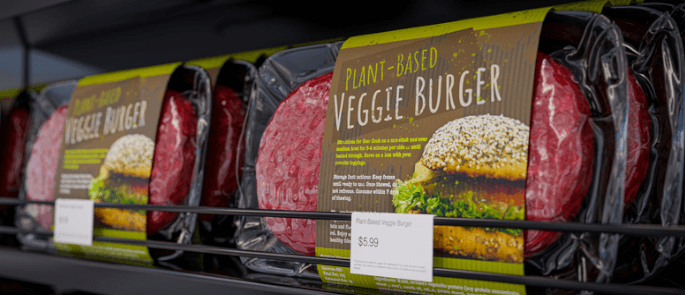
As seen earlier in the article, the Vegan Society’s definition of vegan is ‘a philosophy and way of living which seeks to exclude all forms of exploitation of, and cruelty to, animals for food, clothing or any other purpose.’ This shows that the term ‘vegan’ refers to the use of animals for anything, not just food products. It also uses the term ‘veganism’ to refer to a philosophy or way of life – ‘plant-based’ does not extend this far.
‘Plant-based’ generally refers more specifically to food products only, though it can also be seen on the labels of some beauty products and even cleaning products- this is often simply for marketing reasons. The term ‘plant-based’ is usually used to refer to a food product or diet that consists solely, or largely, of food products derived from plants. Note that this definition, unlike veganism, doesn’t necessarily exclude animal products completely. You can still say you follow a plant-based diet if you eat ‘largely’ plant-based food products or follow a vegetarian diet, for example, or a ‘plant-based burger’ may still contain egg.
There are many myths and misconceptions about veganism, some of which we have debunked in this article, but there are also many more that can make people wonder whether veganism is a good choice. It’s important for everyone to research the facts about this subject, so they can better understand the commonly misunderstood vegan diet and lifestyle.
What to Read Next:
- A Vegan Grocery List – 50 Ideas for a Healthy Vegan Kitchen
- A Vegetarian Diet: What Can I Eat & What are the Benefits?
- Guide to Alternative Milk: Food Safety, Nutritional Benefits & A Good Brew!
- Vegan Food Products: What are the Labelling Requirements?
- Nutrition and Healthy Eating Training Course


